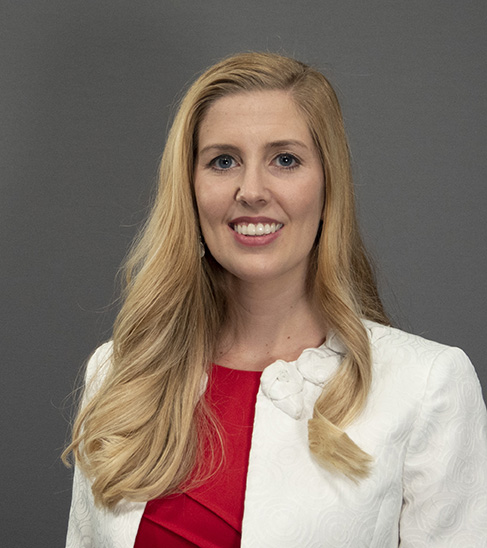The COVID-19 pandemic has led to increased concern and awareness about health and safety across the spectrum. Though there is no evidence that the novel coronavirus can be transmitted through food, increased concern about food safety remains. Among other food items, outbreaks tied to various fresh and frozen produce are all too common, despite processors’ best efforts to mitigate risk of pathogen growth during harvesting and processing, including multiple intervention washes prior to product packaging.
Still, adverse issues have persisted, leaving the foodservice industry wondering what more can be done to make fresh produce safer. This is where material science innovations come into play. New technology can enable processors to continue to reduce pathogen growth after the package is sealed, providing a final intervention step to significantly reduce the risk of foodborne illness from minimally processed foods.
Q: How does material science technology work as a pathogen mitigation strategy for fresh produce?
Angela Morgan, Ph.D.: Innovations in material science technology have enabled a new class of polymer compounds that perform active functions within packaging material to protect products from environmental conditions that can adversely impact quality and safety. This is called active packaging technology.
My company, Aptar CSP Technologies, developed 3-Phase Activ-Polymer™ technology more than 25 years ago for use in the pharmaceuticals space. Now, this technology is being applied to provide food protection solutions, specifically for fresh and frozen produce, to help mitigate risk of foodborne illness outbreaks.
To understand how this technology works, you first need a basic grasp of 3-Phase Activ-Polymer™ technology. Essentially, this material science innovation has three parts: a base polymer that provides physical structure, an active particle or component that offers a protective function, such as absorbing liquids or emitting an antimicrobial agent, and a minority polymer or channeling agent that enables gas movement throughout the base polymer. This technology can be custom-formulated to accomplish a range of tasks, such as absorbing moisture, scavenging oxygen or volatile organic compounds (VOCs), emitting aromas or eliminating odors or, in the case of produce, dispersing an antimicrobial agent within a sealed package to mitigate pathogen growth.
The technology we are discussing here, InvisiShield™, is a specially-engineered antimicrobial delivery system that safely creates a controlled dosage of chlorine dioxide (ClO2) gas inside a sealed package to reduce pathogen growth – both bacterial and viral – while minimizing negative organoleptic properties. Extruded into a film, the technology is adhered to the lidding film of fresh produce immediately prior to sealing, providing a final intervention step that is currently lacking in today’s produce processing methods.
Once the package is sealed, the humidity inside the package triggers a controlled release of ClO2 into the environment surrounding the produce, reducing pathogens within a matter of hours and leaving no trace after treatment. Independent studies from researchers at NC State have validated the technology delivers approximately a 3 log or 99.9% reduction in pathogen growth with no negative impact to taste, appearance or texture. The technology has been shown to be effective on a range of bacteria and viruses such as pathogenic E. coli, Salmonella, Listeria monocytogenes, Human norovirus, Hepatitis A, Shigella, Campylobacter jejuni, Staphylococcus aureus, Yersinia enterocolitica, Vibrio vulnificus, Geotrichum candidum, Feline calicivirus, and Rotavirus.
Q: What are some of the benefits of adopting this technology?
Morgan: Aside from the obvious benefits of brand protection, keeping food safe for consumers, and reducing the likelihood of recalls due to foodborne pathogens, InvisiShield™ technology is an additional hurdle or mitigation step in a processor’s food safety plan or HACCP (Hazard Analysis Critical Control Point Plan). The HACCP is a management system endorsed by the FDA in which food safety is addressed through analysis and control of biological, chemical, and physical hazards from raw material production, procurement and handling, to manufacturing, distribution and consumption of the finished product. While currently voluntary for the produce industry, HACCP programs are also highly recommended across all food industries. Currently, to comply with food safety testing requirements, processors need to hold product for as long as three days to wait for testing results to assure the product is safe to distribute. However, the InvisiShield™ antimicrobial delivery system enables the processor to bypass those wait times, immediately distributing product upon packaging. This results in extended shelf life and reduced wastage, while also providing an additional intervention step to protect against all of the residual effects of having an outbreak such as negative impacts on brand image and the expense of recalls.
Currently, to comply with food safety testing requirements, processors need to hold product for as long as three days to wait for testing results to assure the product is safe to distribute. However, the InvisiShield™ antimicrobial delivery system enables the processor to bypass those wait times, immediately distributing product upon packaging because the final pathogen mitigation process occurs inside the sealed package during shipment.
About Angela Morgan, Ph.D
 Angela Morgan is Director of Business Development and Food Safety Solutions responsible for commercializing the portfolio of antimicrobial technologies at Aptar. She most recently worked at Sealed Air Corporation as the Director of America’s Legacy Food and Product Care Division, and previously worked at Turkey Hill Dairy and Campbell’s Soup Company. Morgan received her B.S and M.S. degrees in Food Science from Pennsylvania State University and her PhD. from Clemson University in Packaging Engineering. Finally, Morgan holds memberships in numerous professional and civic organizations and serves on the AIPIA advisory board.
Angela Morgan is Director of Business Development and Food Safety Solutions responsible for commercializing the portfolio of antimicrobial technologies at Aptar. She most recently worked at Sealed Air Corporation as the Director of America’s Legacy Food and Product Care Division, and previously worked at Turkey Hill Dairy and Campbell’s Soup Company. Morgan received her B.S and M.S. degrees in Food Science from Pennsylvania State University and her PhD. from Clemson University in Packaging Engineering. Finally, Morgan holds memberships in numerous professional and civic organizations and serves on the AIPIA advisory board.




